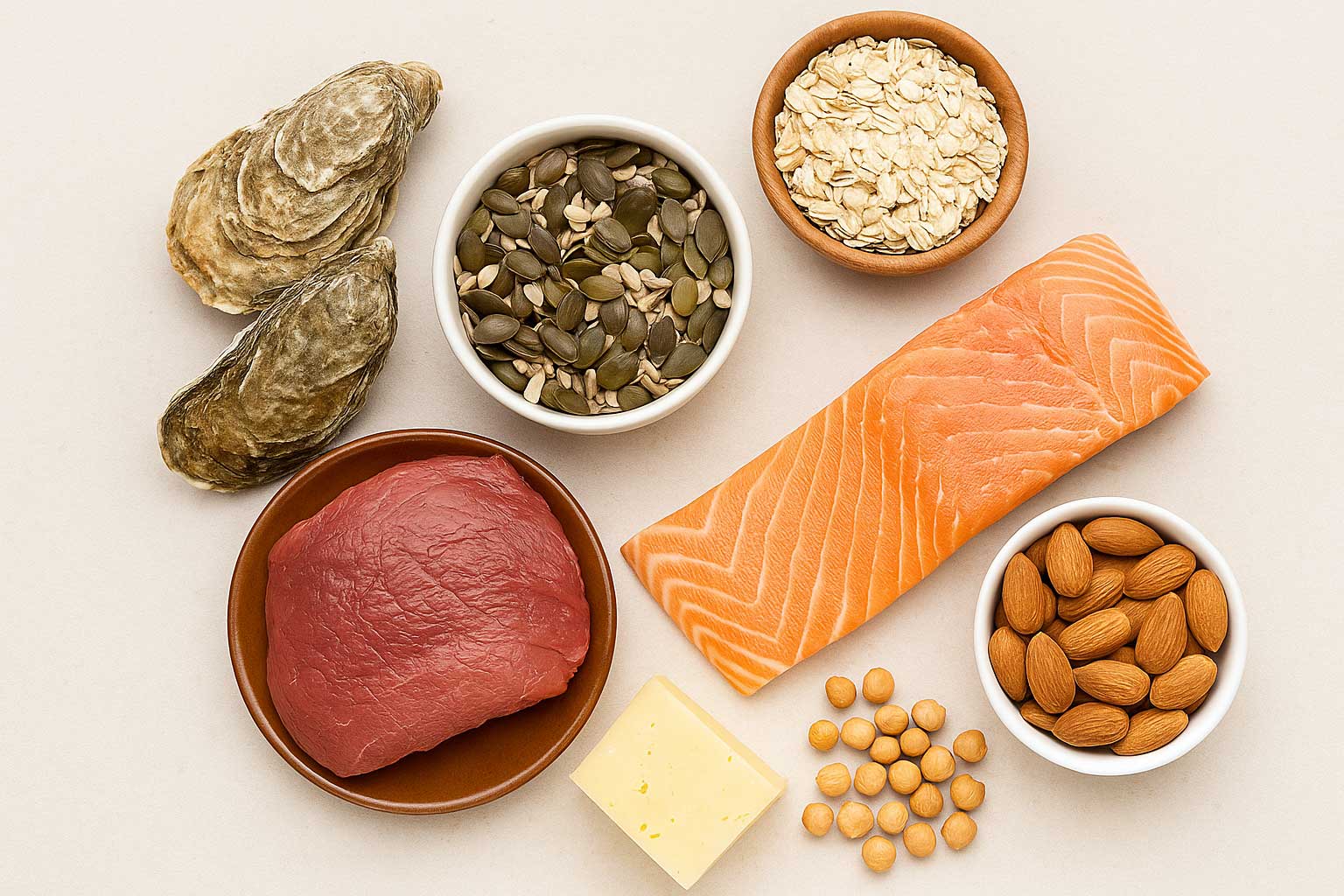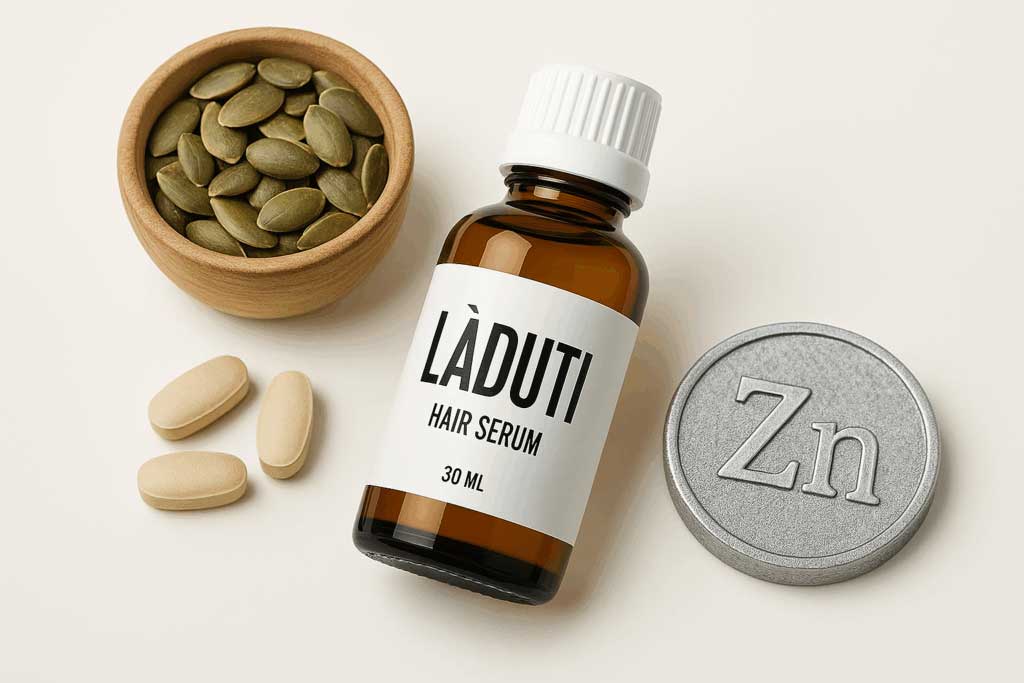Zinc-rich foods for healthy hair? What's the truth?

Shiny, strong hair starts not only with the right care, but also with optimal nourishment from within. One of the most important nutrients here is zinc. The trace element supports numerous processes in the body - from cell growth to hormone regulation - and plays a central role in hair health. But what happens if there is a deficiency, which foods are particularly rich in zinc and how much do you need every day?
In this article you will learn everything you need to know about zinc and its importance for healthy hair.
Why zinc is so important for hair
Zinc is an essential trace element that supports numerous processes in the body. It plays a particularly important role in hair health:
- It promotes cell division and the growth of hair follicles.
- It regulates the hormone balance that is relevant for hair growth.
- It supports the formation of keratin, the main component of our hair.
A lack of zinc can lead to diffuse hair loss, brittle hair and slower hair growth.
The best zinc-rich foods for healthy hair
Animal sources of zinc
- Oysters & seafood: the leaders in terms of zinc content.
- Beef & veal: Good supply for daily needs.
- Eggs: In addition to zinc, also rich in biotin, another hair vitamin.
Plant sources of zinc
- Pulses: Chickpeas, lentils and beans provide plant-based zinc.
- Nuts & seeds: Pumpkin seeds, cashews and almonds are valuable sources.
- Wholemeal products & oatmeal: Support the supply of zinc and fiber.
Combination for better absorption
As plant-based zinc is less easily absorbed by the body, it is advisable to combine it with foods rich in vitamin C (e.g. peppers or oranges) to increase its bioavailability.
Zinc requirement per day
The German Nutrition Society (DGE) recommends:
- Men: approx. 10 mg zinc per day
- Women: approx. 7 mg zinc per day
The requirement can be even higher during stress, intensive sporting activity or during a diet.
Zinc and hair loss - is there a connection?
Studies show that a zinc deficiency can promote hair loss, especially in the case of diffuse hair loss. A balanced diet with zinc-rich foods or targeted supplementation can help to strengthen the hair roots in the long term.
Conclusion: nutrition plus care for strong hair
A diet rich in zinc is a fundamental building block for healthy and strong hair. However, nutrition alone is often not enough to solve hair problems holistically. In addition, targeted care with effective ingredients can be crucial.
The Laduti Hair Serum combines a sophisticated combination of proven active ingredients:
- Biotin supports keratin production, the main component of hair, and thus ensures greater stability and resistance.
- Caffeine promotes the activity of the hair follicles and stimulates them.
- Rosemary extract provides valuable antioxidants, stimulates blood circulation and supports the regeneration of the scalp.
- In addition, other plant extracts such as ginseng help to revitalize the hair roots and soothe the scalp.
This not only optimally supplements a zinc-rich diet, but also provides a holistic formula that supports your hair roots and scalp in equal measure.

FAQ
Can zinc deficiency really cause hair loss?
Yes, a lack of zinc can promote diffuse hair loss, as hair follicles are dependent on a sufficient supply of zinc.
Which foods contain the most zinc?
Oysters, beef, pumpkin seeds and lentils are particularly rich in zinc.
How quickly does zinc work against hair loss?
This depends on the initial situation. The first improvements can occur after a few weeks to months.
Should you take zinc supplements?
Only if there is a proven deficiency or increased requirement. A varied diet often covers the zinc requirement sufficiently.
Can zinc also work in hair care products?
Zinc compounds are sometimes used in shampoos to combat dandruff and scalp problems. However, absorption via the diet is crucial for the hair roots.

